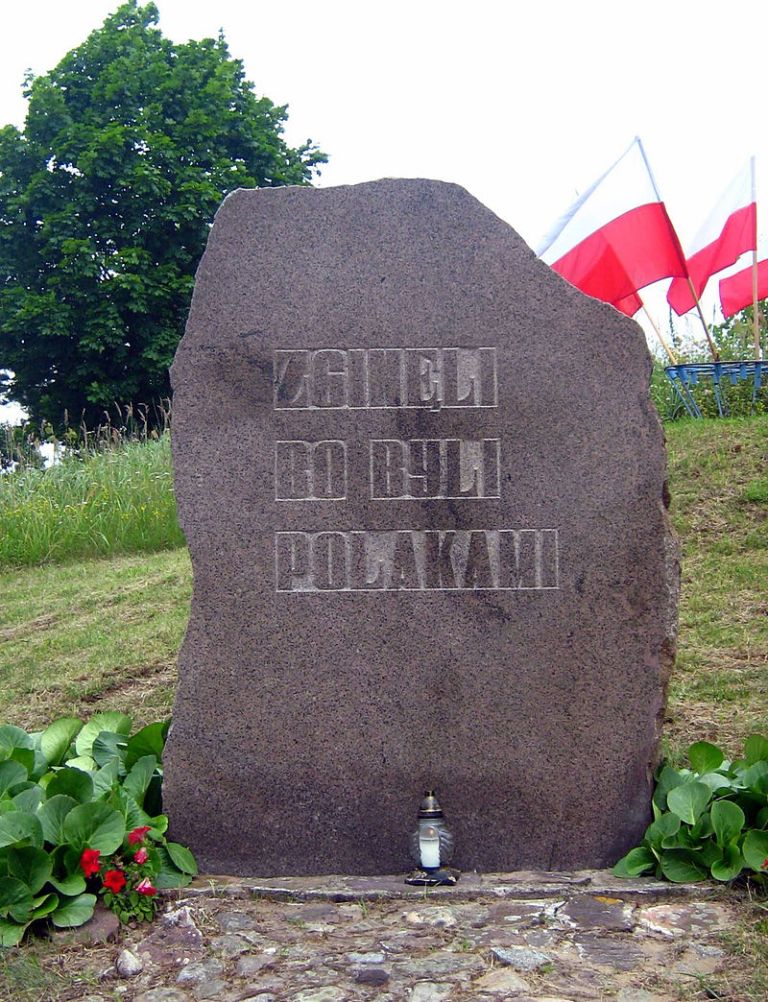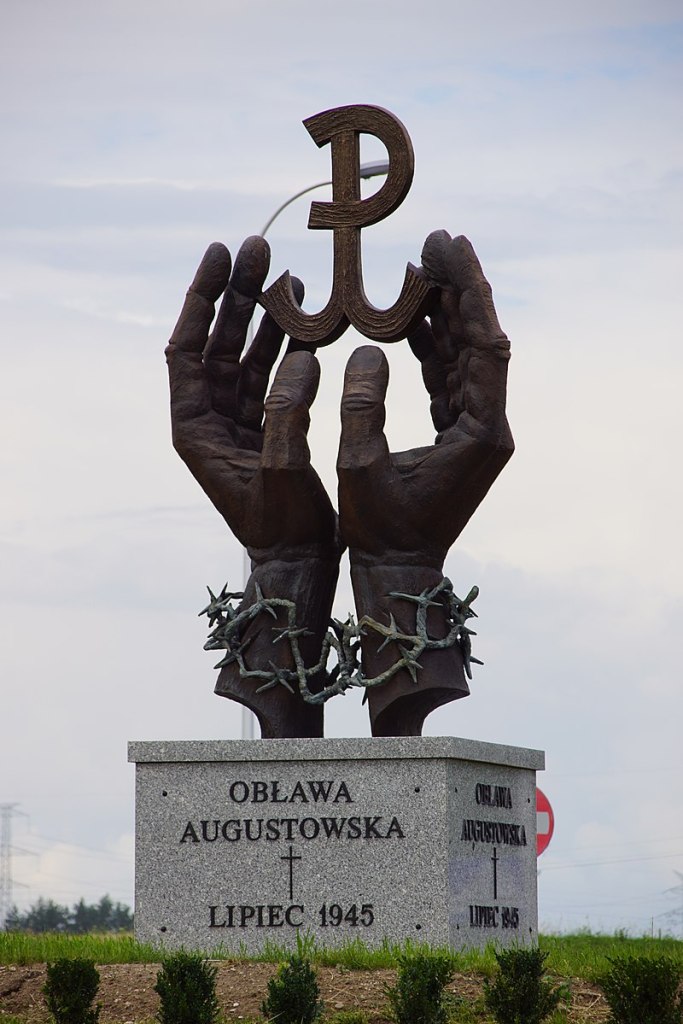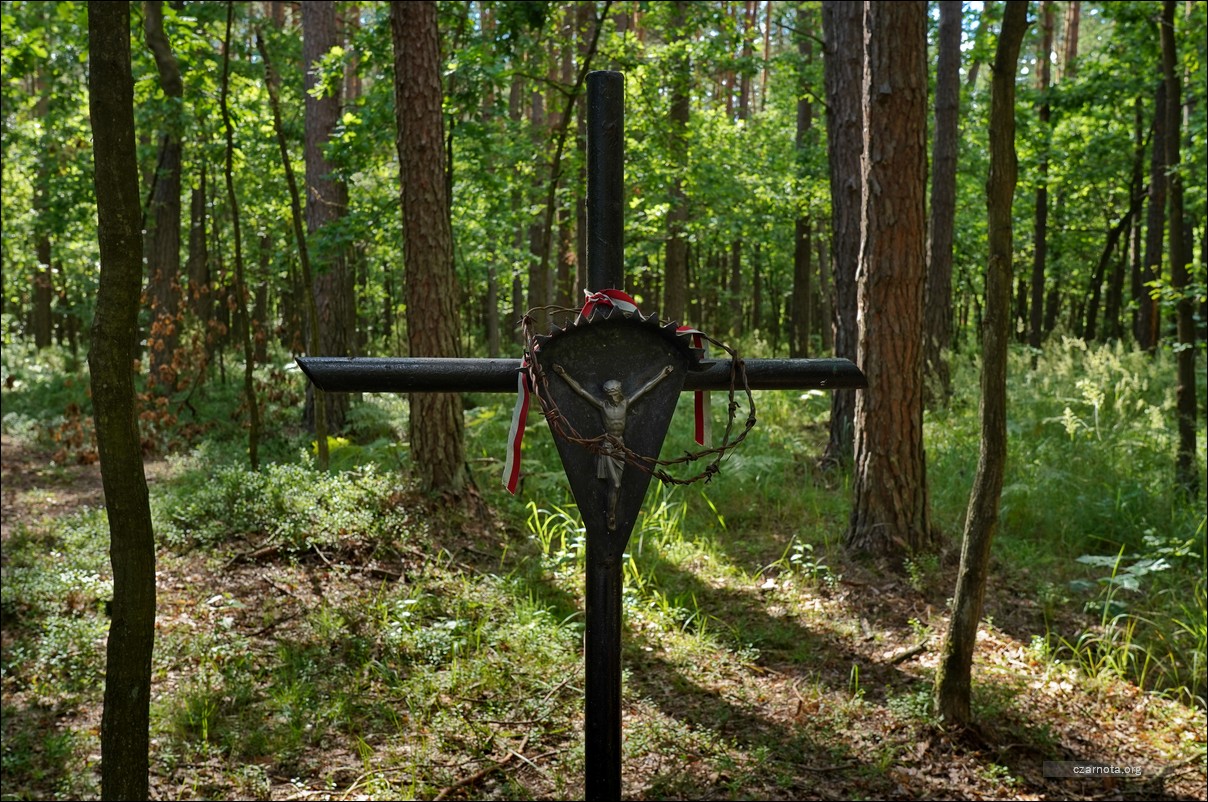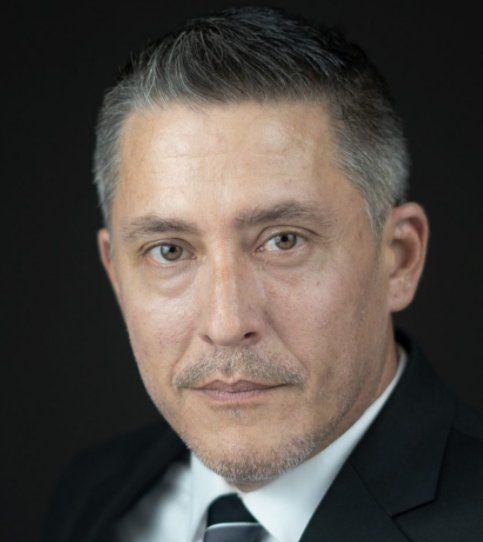The Augustów roundup “the largest crime committed by the Soviets on Polish lands after World War II”
“Little Katyn” or “Podlaski Katyn”
The Augustów roundup was one of the most bloody mass murders committed by the Soviets on Polish citizens, after the end of the II World War. Despite that fact, however, neither school books nor encyclopedias, even mention this tragic episode in the post-World War II history of Poland.
The whereabouts of those who perished during this roundup are unknown, as is unknown their place of burial.In July, 1945 the Red Army units supported by the communist UB (Urząd Bezpieczeństwa – Polish secret police), and MO (pol. Milicja Obywatelska – The People’s Milicia) conducted a grand-scale pacification in the Puszcza Augustówska [eng. Augustów Primeval Forest], and in the surrounding area.
The Soviet forces combed through the forests and villages, arresting all those suspected of collaboration with the Polish Underground. During the course of the roundup, nearly 2,000 individuals were detained. Some of those returned home after being interrogated and tortured, while 600 were sent to an unknown location, never to be heard from again. This is their story.
At the outset of the II World War, the Suwałki and Augustów counties fell under the control of two occupiers: the Soviets, who established hegemony over the entire county of Suwałki, along with a portion of the Augustów County, and the Nazis, who reigned over a greater portion of the Augustów County. Right from the outset of this dual occupation, the Polish population residing in this area began to form underground organizations to resist the occupiers.
Many armed underground organizations, such as Temporary Council of Suwałki Region (Pol. Tymczasowa Rada Ziemi Suwalskiej), the Pilsudski’s Legion (Pol. Legion Piłsudskiego), the Near-Niemen Legion (pol. Legion Nadniemenski), and National Revival (pol. Odrodzenie Narodowe) sprang into action, and ultimately united under the banner of ZWS, the Association of Armed Struggle (pol. Związek Walki Zbrojnej).
The underground soldiers didn’t let the occupiers rest. After the Soviet-German war began, the infrastructure of the patriotic underground became unified under the standard of the Home Army and was known in this area, as the Polish Insurrection Union (pol. Polski Związek Powstańczy). At the beginning of Spring, 1944, the Home Army had nearly 5 thousand sworn members.
During the operation “Tempest” (pol. “Burza”), in Spring, 1944, the Home Army units had to, in large part, reveal their identities, a fact which after the Germans are ejected from the North-Eastern part of Poland, and are replaced by the Soviets, will have tragic consequences. The Home Army soldiers were arrested, and either sent to the East or forcibly conscripted into the communist Polish People’s Army (pol. Ludowe Wojsko Polskie).
These repressions considerably undermined the strength of the underground infrastructure. Only in Spring, 1945, the soldiers who hid in the forests, began to reorganize themselves into new units and to engage the new communist regime. As a result of these activities, in the Suwałki county, the democratic underground units destroyed seventeen, out of eighteen MO (Pol. abbr. People’s Militia) stations, and from among fourteen rural municipalities (pol. Gmina) created by the communists, only two functioned. Furthermore, twenty-three death sentences against the communist collaborators, and dedicated “helpers” of the new “people’s government” were carried out. Equally active were units conducting activities in the Augustów county.
The success of the Home Army aggravated the Polish communists, and their Soviet masters, particularly, since the Soviet Red Army, and the NKVD(Russ. The People’s Commissariat for Internal Affairs (Народный комиссариат внутренних дел Narodnyy commissariat vnutrennikh del, НКВД), who took an active part against the underground units, and the population at large, became more frequent targets of the democratic underground. After the capture of Berlin and the end of World War II, a much larger number of personnel from the UB, NKVD, and the Red Army was dispatched to conduct activities against the democratic underground. These activities were conducted mainly by the Soviets, and at the “request” of the provincial, and county “governments”.” The Roundup of Death”
The largest “cleanup” operation against the democratic armed underground, was conducted in July 1945, and thus, became known as either the “July Roundup”, or as the “Augustów” Roundup, as it took place in and around Augustów area. The operation was conducted mainly by the Soviet forces, including the NKWD, Smersh (Soviet acronym: “SMERt’ SHpionam” – Eng. Death To the Spies), and the soldiers of the 3rd Belarusian Front. The functionaries of the UB, MO, and local informers (many who were Jews - Polish citizens) played the role of the betrayer Judas, pointing out individuals who should be arrested, serving as guides, and as interpreters, during horrific interrogations that ensued. The communist forces which took part in the roundup amounted to nearly fifteen thousand men.
The methods, and circumstances, under which arrests took place varied. The Home Army soldiers, and individuals sympathetic to them who lived in the cities, were arrested either during evenings or at night. The inhabitants of the villages, on the other hand, were dragged out of their homes, snatched from country roads, or fields. Those detained were jailed in various places and often subjected to horrific tortures. From among 1,900 to 2,000 arrested, around 600 people were selected from the list, which was prepared earlier by the communist collaborators. Among those selected, were women, and even boys.
According to the information obtained from the witnesses, these individuals were placed on trucks and transported towards the Soviet border. From that moment on, their whereabouts are unknown. Today, one thing is certain – they were murdered on orders issued by the Soviets, and their remains are located somewhere on the territory of the former USSR. The search for the missing was undertaken by their families immediately after the roundup, but the trail ended at the selection camps, where they were held for a short time.
The villagers from the rural municipality called Giby, were first to ask about the fate of the missing, as during 1945, 109 individuals were taken away, and among those, 90 were detained during the roundup. In November 1945, the Giby municipality sent a delegation to Warsaw in order to locate their missing neighbors, friends, and family members. Not surprisingly, they were not given any information. During the Stalinist times, any and all information about the roundup was taboo, and bringing this subject up, could end tragically for those who dared to ask.
During the following years, the subject of the “July Roundup”, was mentioned only during the so-called period of Khrushchev’s Thaw, that trickled into Poland. Only in 1987, the matter of those missing received serious attention, when Stefan Myszczynski, who lost three brothers and his step-father during the roundup, discovered graves near the road connecting Rigol and Giby. Initially, it was suspected that they contained remains of those missing from July 1945.
After their examination, however, it was revealed that they contained remains of German soldiers who died during the war. Impulsively, the public opinion, began to be more interested in the fate of the victims of the July Roundup, and on August 2, 1987, Obywatelski Komitet Poszukiwan Mieszkancow Suwalszczyzny Zaginionych w Lipcu 1945 [eng. The Citizen’s Committee To Locate Missing Inhabitants of the Suwałki Area Who Perished in July 1945”], was formed.
Even though the local government forbids the Committee to conduct its activity, they refused. Its founding members, Piotr Bajer, Mirosław Basiewicz, Stanisław Kowalczyk (from Suwałki), along with Alicja Maciejewska, Maria Chwalibog, and Jan Krzywosz (from Warsaw), with dedication, gathered information about those perished. In 1992, all information they were able to obtain was delivered to the Public Attorney’s Office in Suwałki. However, the Public Attorney’s Office dismissed the case because of lack of evidence, and its inability to probe through the classified post-soviet-era archives.
In 2001, case files reached the Institute of National Remembrance (pol. abbr. IPN). The investigation into the Augustów murders is presently conducted by the Institute of National Remembrance — Commission for the Prosecution of Crimes against the Polish Nation. Despite the fact that some progress was made, however, neither the fate of those presumed dead, nor the identities of the perpetrators, nor the location of graves, have been discovered. The resources available to the IPN prosecutor to solve this case within Poland itself, have been exhausted.
The Names of the Augustów
Missing:
Michalowski
Feliks Borucki
Franciszek Chelminski
Henryk Chelminski
Jan Cichor
Mieczyslaw Ciechanowicz
Aleksander Dyczewski
Franciszek Dyczewski
Henryk Filar
Antoni Filipowicz
Antoni Gasiorowski
Jerzy Janik
Lucjan Jatkowski
Mieczyslaw Jedlinski
Wladyslaw Klewiado
Walenty Kolonicz
Jerzy Stefan
Mikolaj Kuzniecow
Teodor Lipski
Mieczyslaw Niedzwiecki
Stanisław Olechowicz
StanisławOrzechowski KazimierzPuzynski HenrykRudzewicz EdwardRzepecki JanSienkiewicz BoleslawSoltys LeonardStelmasik TadeuszSzygiel HenrykWisniewski JanWisniewski Jan, son of Stanisław WisniewskiWisniewski StanisławWolasewicz MichalZylinski JanBALINKABlazewicz WladyslawChodakiewicz JozefGasiorowski AntoniGasiorowski EdwardKakiel JozefKornilowicz ZygmuntKukowski FranciszekMarkowski JozefSiedlecki AntoniSiedlecki WaclawSiedlecki WladyslawZalewski SzymonBERZALOWCEMarkiewicz AntoniMarkiewicz JanRadzewicz AntoniBERZNIKITujakowski MarianBIALA WODAGliniecki AleksanderWysocka AnielaWysocka KazimieraWysocki LudwikBIALOGORYAdaszko ZygmuntCieslikowski StanisławGutowska BronislawaMarcinkiewicz StanisławMieczkowski AntoniMieczkowski WincentyMilewski StanisławBIALOWIERSNIEKonopko FranciszekKonopko StanisławMoroz Jozef (father)Moroz Jozef (son)Paszkiewicz AntoniPaszkiewicz FranciszekPlewinskiRybaczynski FranciszekRenkiewicz FeliksRewinskiSwiecicki DominkSwiecicki SzymonSwiecicki WincentyBOSSEAndrulewicz FranciszekAndrulewicz JaninaBRZOZOWOSutula JozefBUDOWIEC, the ZELWY colonyMiszkiel WaclawRadziewicz BoleslawCHOMASZEWOLesniewski FabianMysliwski WaclawMysliwski ZygmuntCISOWDytkowski ZygmuntCZARNIEWOButkiewicz LudwikPawelko ZofiaPycz WladyslawSzumska KrystynaCZARNY BRODKrajewski CzeslawOkuniewski JozefCZARNY LASHaraburda EdwardDALNY LASJuszkiewicz AleksanderJuszkiewicz JozefMakarewicz JanPuczylowski FranciszekDANILOWCEBiziewski AntoniCzekajlo WiktoriaKaminski LudwikLaskowski BronislawLaskowski StanisławMichalski StanisławMichalski WincentyPrzekopski AntoniPrzekopski FranciszekWegrzynowicz MarianDANOWSKIELipnicki JozefPachucki AntoniPachucki PiotrDABROWA BIALOSTOCKAPryzmont KazimierzDEGUCIEJungiewicz CzeslawDLUGIETarasewicz EdwardTarasewicz StanisławDWORCZYSKOMyszczynski BronislawMyszczynski WalerianMyszczynski WitoldWolos WladyslawFIEDOROWIZNAOrlowski AntoniOrlowski Mieczyslaw, son of AntoniOrlowski MieczyslawFILIPOWGrabowski JozefJakubowski FeliksKaminski FranciszekRutkowski BoleslawRutkowski StanisławSzypulski JanGAWINIANCEOkulanis WitoldGIBYBednarski LeonBozymski AntoniJanczewski FranciszekKrejczman CzeslawKrejczman StanisławKozlowski JanKulpan JozefKucharzewska ZytaMoroz JozefNiemkiewicz StanisławRomatowski AleksanderSzarejko StanisławZubowicz StanisławGORCZYCAJakubowski WladyslawLebski FranciszekSobolewski StanisławSobolewski WladyslawZukowski WladyslawGREMZDY POLSKIEPodchajski StefanGRUDZIEWSZCZYZNALejmel JozefGRUSZKIBaranowski WladyslawKubryn AlbinKurylo JanMakar AntoniMieczkowski AntoniMieczkowski JanMieczkowski JozefMieczkowski WitoldMieczkowski ZygmuntSluzynski JozefWasilczyk PiotrWasilczyk ZygmuntWysocki StanisławHAMULKAKulak Stanisław, son of Maciej KulakKulak Stanisław, son of Klemens KulakKulak WaclawSzosta WladyslawIWANOWKAKoncewicz StanisławMiszkiel EugeniuszMiszkiel MieczyslawSitkowska JadwigaSitkowski EugeniuszSitkowski StanisławJAMINYPietko BronislawJANOWKABozewicz KazimierzKaminski JozefTruszkowski StanisławJESIONOWO near KRASNY BORChlebanowski StanisławDaraszkiewicz AdolfGramacki TadeuszKarp EdwardKrzysztofik JanSzczytko CzeslawSzczytko EugeniuszJASTRZEBNA IGramacki CzeslawJASTRZEBNA IIMakarewicz StanisławMalinowski StanisławJAZIEWOAndruszkiewicz MieczyslawBielawski JanDziadziak StanisławGuziejko AntoniHaraburda EugeniuszJanik JanKarp LeonKozakiewicz CzeslawKugiel AdamKunda EdwardKulakowski KazimierzMatyskiela StanisławSuchwalko LudwikSzmygiel FranciszekSwierzbinski KlemensUsnarski JanJURYSDYKARuksc IzydorKAMIENNA NOWAGows JanKrzywosz JanKrzywosz StanisławSobolewski WaclawStroczkowski PawelUgolik BronislawUgolik JanUgolik WincentyWolczek AntoniKAMIEN near SZTABINKanty AntoniMurawski WladyslawOstapowicz IldefonsRutkowski BernardSzyperski TadeuszKANALOW A-SOSNOWEKJarzebowicz MieczyslawKAROLINBobrukiewicz JanBobrukiewicz JozefBobrukiewicz StefanDylnicki PiotrSyperowicz StanisławSwiecicki StanisławTerlecki Bronislaw BoleslawKOLNICAMichniewicz WitoldKOMASZOWKA near KOLNOMiezio FranciszekMiezio JozefKOMASZOWKA near KRASNY BORZywna BernardKAROLINYSkrocki BronislawSkrocki JuliuszKOPALNICACzokajlo AntoniDanowski JozefFiecko FeliksFiodorowicz WaclawHolubowicz StanisławKorenkiewicz LucjanKOPIECDobrowolski ZygmuntDuchinski JanJaglowski PiotrKaminski AntoniMalkowski LucjanRoszkowski IzydorRoszkowski StanisławRutkowski StanisławSiarkowski WitoldSiwicki ZygmuntSzyszkiewicz StanisławZukowski KonstantyKRASNEBarszczewski WaclawKrysiuk CzeslawKrysiuk RemigiuszKrysiuk StanisławSawicki BronislawSawicki WladyslawKRASNOBORKIDyjak JozefaKarp StanisławKondarcki KazimierzMroziewski WitoldSurgont StanisławSzymkuc AntoniSzyper KazimierzWasilewski WladyslawZdunko JanKRASNOPOLBiziewski JozefLisiewicz CzeslawLuto AleksanderMalinowski WaclawNowalski StanisławKRASNYBORBucko KonstantyHaraburda JozefHornowski KarolKarp StanisławKrzywicki JanKulik JozefKuzmicki LeonSzymanski CzeslawSzyper JozefZysko AntoniKREJWINCEMilewski JanKRUSZNIKMartynko EdwardStatkiewicz KazimierzKRYLATKAKupinski MichalLASANKAMaslowski FranciszekLEBIEDZINGramacki StanisławKuzmicki StanisławLESZCZEWEKKoronkiewicz LucjanWarakomski AleksanderMACHARCEMyszczynski EdwardMALYSZOWKAKalisz WaclawKulak JozefSiedzik KazimierzWnukowski AlbinWnukowski DominikMIKASZOWKABielenica Piotr (from Kalety in USSR)Rozanski RomualdSienkiewicz RemigiuszMOGILNICEAndraka MarianRzepka MarianSzmygiel KazimierzSzumski IgnacySzumski ZygmuntWaszkiewicz IldefonsMOTULKAKondracki ZygmuntNOWA WIESKarpienia StanisławOlszewski JozefToczko AleksanderNOWINKALazarska DanutaLazarska EugeniaLazarska WladyslawaSotaolewski PiotrWarakomski FranciszekZareba TadeuszZielinski TadeuszZukowski JanNOWY LIPSKChomiczewski StanisławDoroszko ZofiaLozowska AnnaMatuszewski BoleslawOKOLEKMiszkiel FranciszekORZECHOWOMyszczynski WitoldOSINSKIE BUDYBrozio JanOSOWY GRADGiedrojc DominikWasilewski AntoniWasilewski BoleslawWasilewski CzeslawWasilewski StanisławOSTROWIE BIEBRZANSKIEKopanko IgnacyWnukowska HelenaPLASKAPuczylowski JozefPOCKUNYCzeszkiewicz JozefPOMORZEBielecki AleksanderChrulski BronislawPONIZIEBujnowski KazimierzJanuszko BronislawMargiewicz PawelNowik AleksanderPrawdzik JadwigaWojcik BoleslawWyszynski JanWyszynski LucjanPOSEJANKAAndrulewicz WitoldPOSEJNELELuto JozefMiszkiel EdwardMiszkiel JaninaWojtanis MieczyslawPRUSKA WIELKAMilanowski KonstantyPRZEWIEZGruszewski WiktorRUDAWKA – KURDYNKI – KIELMINYKrupinski SzymonLuckiewicz FeliksMakowski Konstanty (father)Makowski Konstanty (son)Przekopowski JozefSpecjall KarolRYGOLFabisiak (the forester)Kochanowski AntoniKornacki JanObuchowski EdwardObuchowski JanTurowski JozefSAJENEKRogalski IzydorSERSKI LASBondzio JanFiecko FeliksFiecko StefanFiecko WalerianHalicki AleksanderKoncewicz JanKorenkiewicz StefanMichalowski HilaryNazarowski WladyslawSERWYBakuniewicz JanChilinski StefanJaworowski ZygmuntPuczylowski TadeuszTomkiewicz BronislawSTRZELCOWIZNABaranowski FranciszekGolkowski StefanJejer HenrykKazimierczyk KazimierzSTUDZIENICZNAPuczylowski JanSUCHA RZECZKACiemny LeonFrackiewicz BoleslawPuczylowski PiotrRowinski CzeslawSUCHOWOLAOmielan WaclawStelmach SylwesterSUMOWOMullner AlbinMullner AntoniMullner BoleslawMullner WaclawMoroz StanisławMyszczynski EdmundMyszczynski MieczyslawMyszczynski WitoldRapczynski StanisławRupinski JozefRupinski WitoldSiderewicz StanisławSuwałkiAndruszkiewicz (detained in Filipowo)Dabrowski FranciszekDzienisiewicz CelinaDzienisiewicz WandaDzwilewski JanGaglewski TadeuszGumieniak StanisławaFietrolaj TadeuszStankiewicz PiotrWojno HannaWojnoSZTABINChilicki ZygmuntChylicki FranciszekHoffman StanisławSzostynski AntoniWierzbicki LeonTARTACZYSKOCichanowicz PiotrCuchanowicz StanisławTOPILOWKAGolicki StanisławUlikowski JozefWIERCHOLSZYNAWydra WaclawWIERSNIANKAStankiewicz StanisławWIERSNIEKalinowski Bronislaw Zynda AntoniWIZAJNYDebski FeliksRomanowski FranciszekWolagiewicz JadwigaWOJCIECHStefanowski LucjanStefanowski WladyslawWOLNESzczytko KazimierzZawistowski JozefWROTKIPiktel RajmundPiktel StanisławWYCHODNEWasilewski PiotrWYZARNEBialous StanisławZARUBYLuto FranciszekLuto HieronimLuto JozefZELWACymon JozefZabicki StanisławZWIKIELERadzewicz JozefZYWA WODADabrowski FranciszekSources:Doomed SoldiersAdam Bialous





Dodaj
komentarz
By dodać komentarz musisz być zalogowany. Zaloguj się.
Nie masz jeszcze konta? Zarejestruj się.